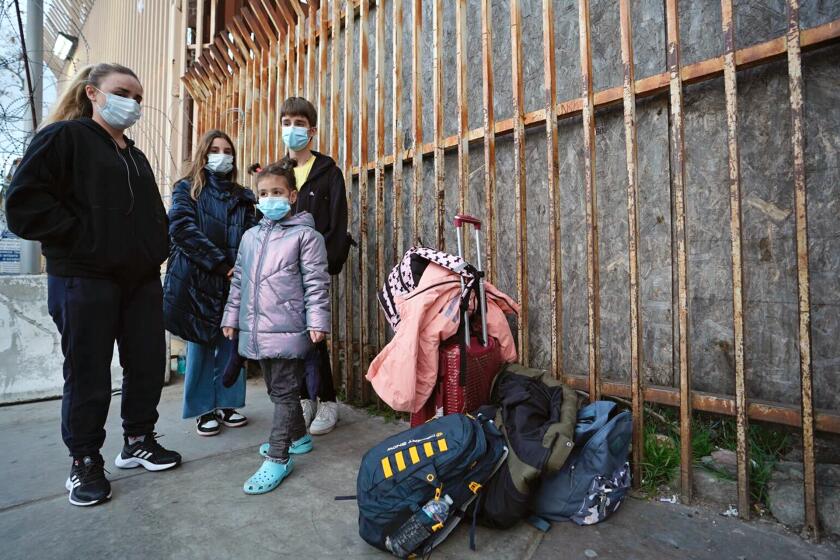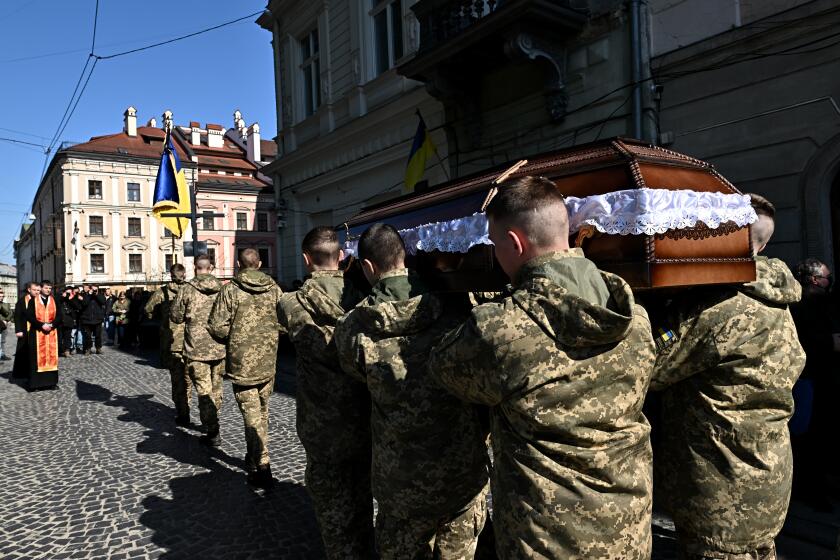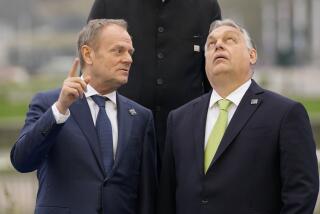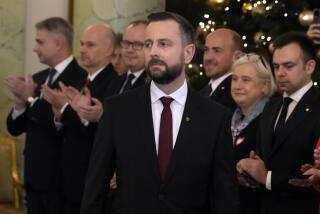Nerves on edge in Poland as war next door in Ukraine revives fears of Russia
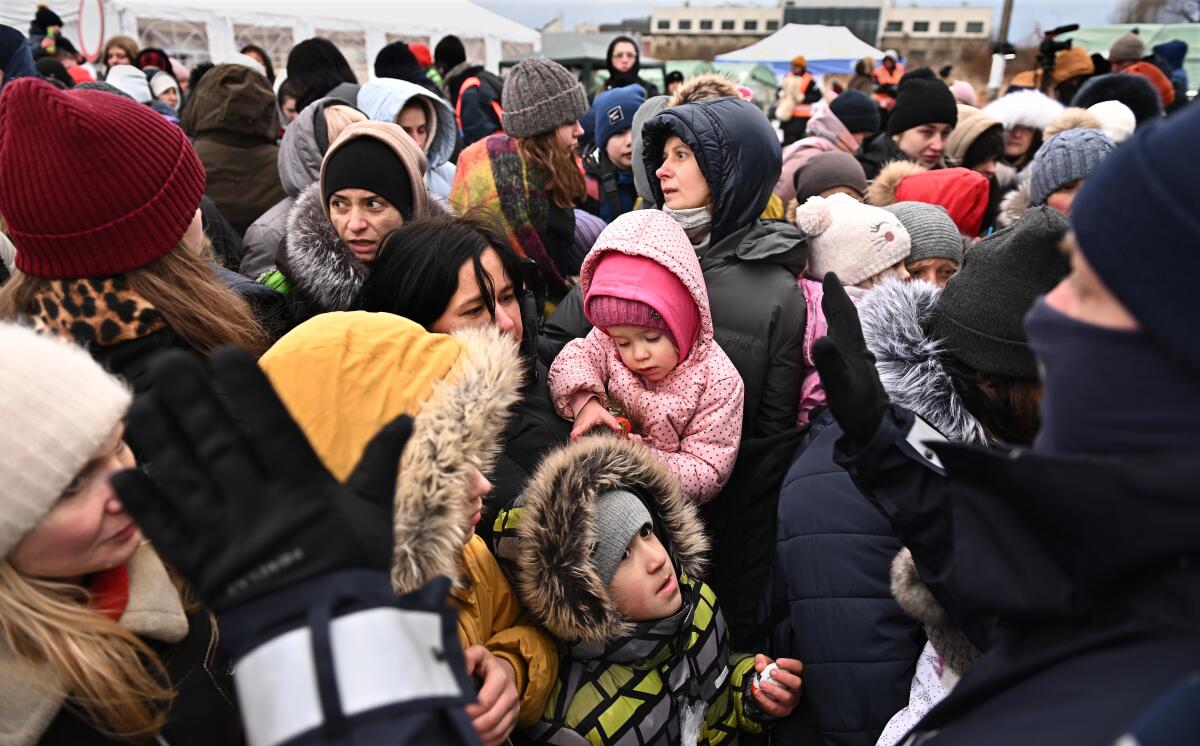
KRAKOW, Poland — Military enlistments are spiking, demands for passports are surging, and memories of the bad old days of the Cold War are fraying the collective nerves of the Polish people.
The Russian invasion of neighboring Ukraine has reverberated in Poland well beyond the influx of more than 1.4 million refugees, a group of mostly women and children that threatens to overwhelm the country’s infrastructure for providing assistance.
Poland’s historical adversary Russia appears to many here to be on an expansionist path that could end up dragging Warsaw into a broader conflict with potentially catastrophic consequences — threatening the post-Cold War order that has seen the nation prosper and develop into a European success story.
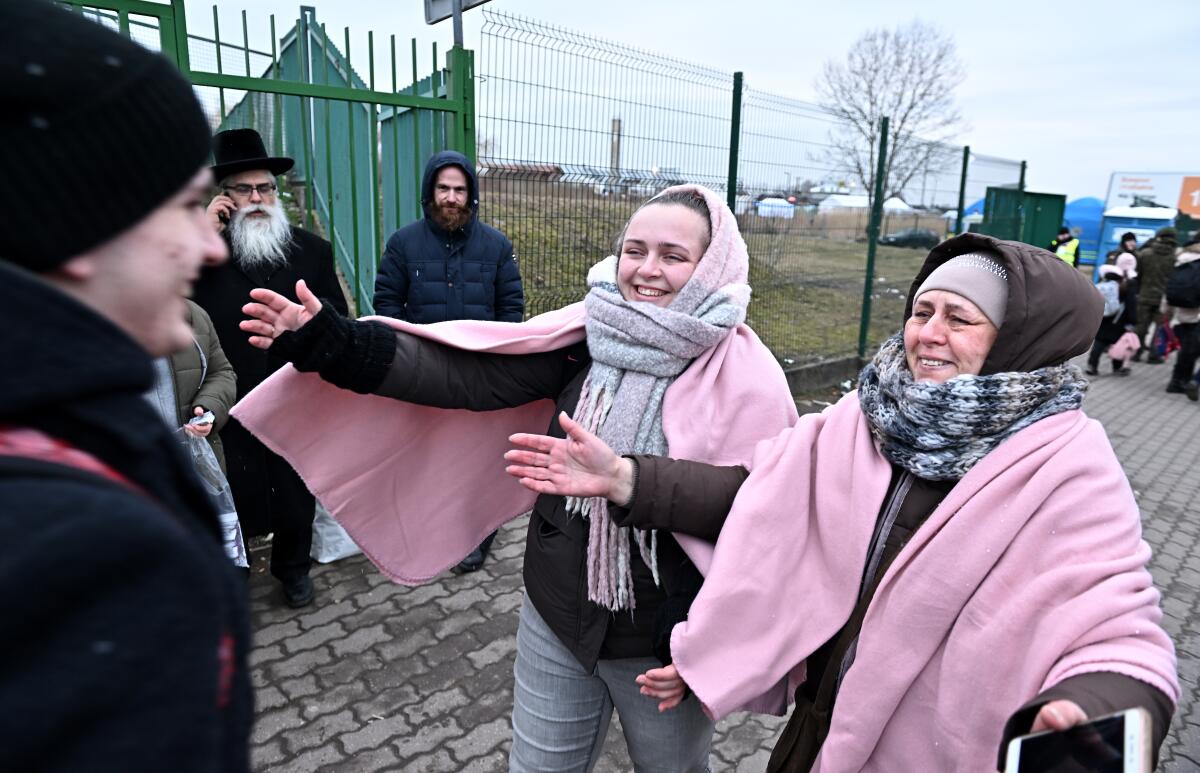
A sense of disquiet is plainly evident, even as life appears to proceed at its normal, if hectic, pace in cities such as Warsaw and Krakow.
“Yes, Polish society is terrified,” said Slawomir Debski, a foreign policy expert in Poland who has advised several governments in Warsaw. “The whole society is aware of how awful, how terrible, and dramatic, any kinetic confrontation with Russia can be.”
A woman and her three children tried to request asylum at the San Ysidro Port of Entry, but Customs and Border Protection officials told them they couldn’t come in.
The fact that Poland is an established member of both the European Union and the U.S.-led North Atlantic Treaty Organization tempers fears that Moscow’s perceived push for a “Greater Russia” could eventually spill into Poland — which was a Soviet satellite state until the fall of Eastern Bloc communism in 1989, the year the Berlin Wall came down.
Poland shares a 144-mile border with Russia — along with centuries of contentious coexistence and profound mutual suspicion. And to some, especially those who lived through the Cold War, the NATO shield seems not all that persuasive.
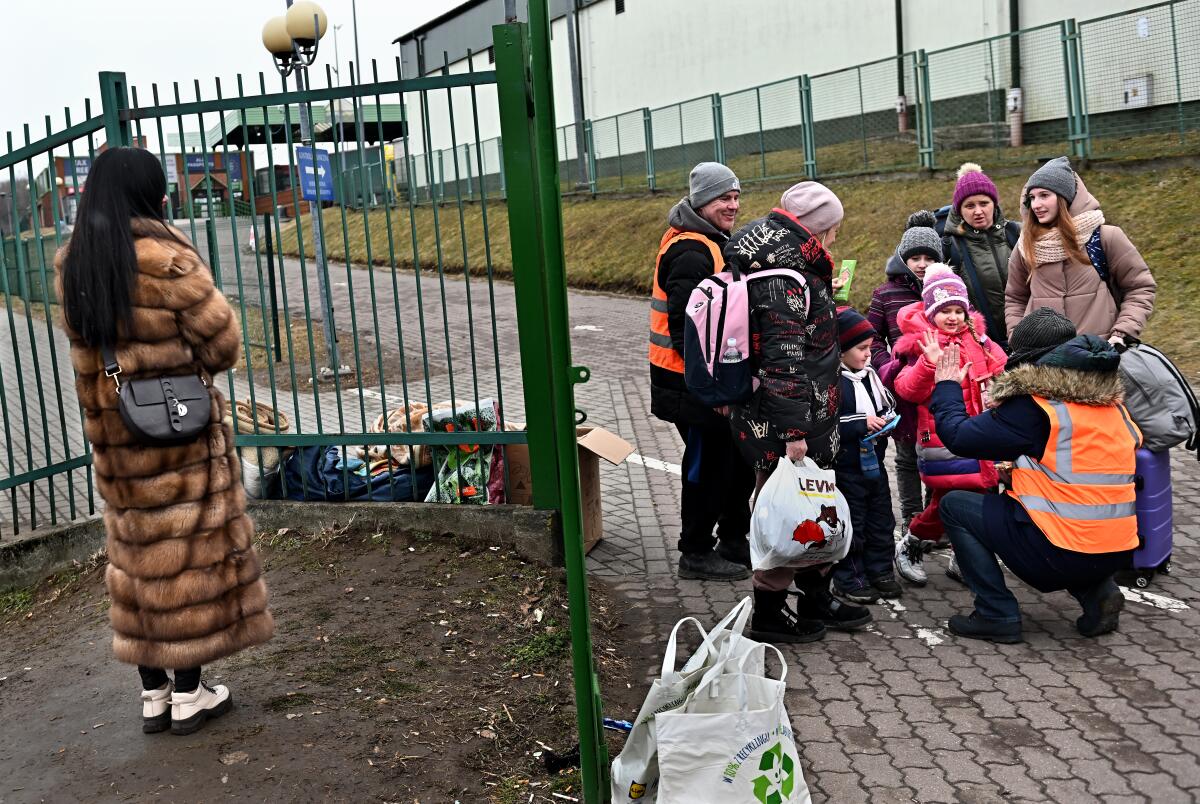
NATO “is just a name,” said Dorota Karpinska, 61, who runs one of the many street stands offering obwarzanki, chewy, bagel-like breads widely consumed here. “Who knows what they’re doing?”
Poles born in the post-communist era appear less likely to fear that the conflict will envelop their country. There is a clear generational split, even if the Russian attack was a kind of wake-up call for the young as well.
“It’s the old people like my parents who feel that Russia can attack anytime,” said Andrzej Piszczek, 24, a student seated in a cafe thick with cigarette smoke and incense. “They say, ‘You never know. We need to prepare ourselves, we need to buy flour, petrol.’”
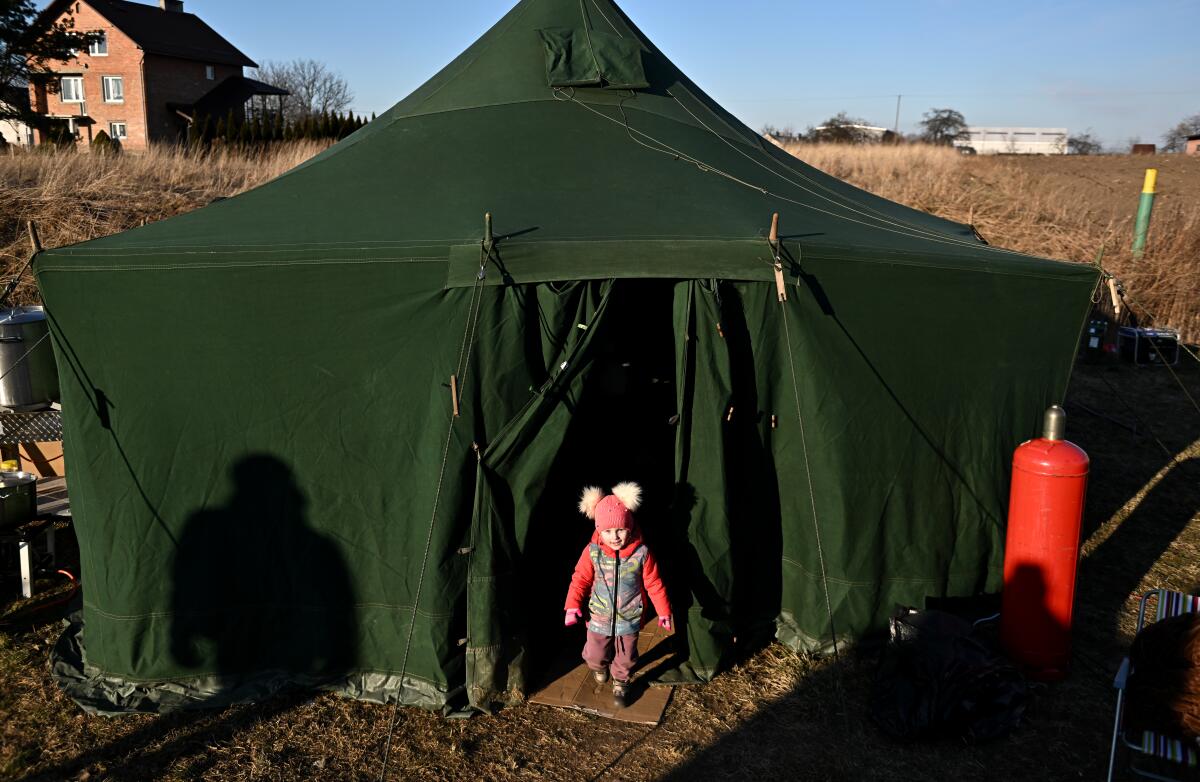
The current situation, many note, differs greatly from the days of the Cold War, when it was widely believed that neither Russia nor the West would resort to the use of nuclear weapons capable of obliterating much of the planet. With Russian President Vladimir Putin’s invasion of Ukraine, and his nuclear threats, no such sense of security exists these days.
“Nuclear blackmail is [now] on the agenda almost every day,” said Wlodzimierz Marciniak, a political scientist and former Polish ambassador to the Russian Federation. “Right now the war is hot and it is next door.”
The streets here in the ancient city Krakow have lately seen a new phenomenon: U.S. soldiers, unarmed but in military fatigues, strolling through downtown, window shopping, visiting tourist sites, stopping for a coffee. Longtime residents say the groups of uniformed GIs have emerged from their bases only in recent days, after the Russian invasion of Ukraine and a buildup in U.S. forces based in Poland.
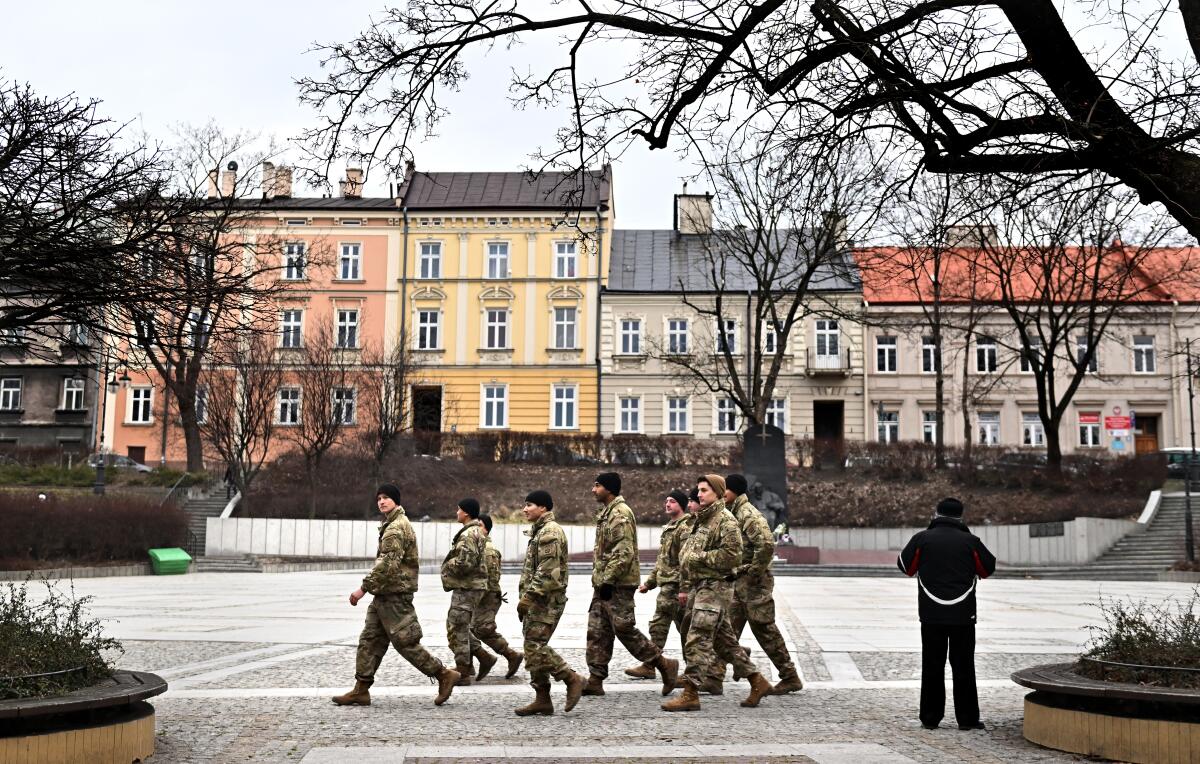
On a recent afternoon, Magda, 39, a restaurant worker, requested a selfie with a group of U.S. soldiers. She said she wanted the photo for her son, 15. The soldiers quickly complied. Their presence, she said, offered both a sense of reassurance — that America has Poland’s back, so to speak — and a feeling that a broader geopolitical conflict could indeed be on the horizon.
“It’s confusing,” Magda, who asked that her surname be withheld for privacy reasons, said after the soldiers had moved on. “I want to live through this, to see the world.”
The Pentagon did not respond immediately to an inquiry about the soldiers’ heightened public profile in Krakow and in the southeastern Polish city of Przemysl, close to the Ukrainian border and a key transit point for war refugees.
As the war next door rages, some Poles are taking precautionary measures.
Almost 800,000 Ukrainians have fled to Poland as Russian forces push farther into Ukraine.
The Polish press has reported a run on demands for passports from those who want to be able to leave the country expeditiously if necessary.
Authorities have also seen rising numbers of new recruits for the Territorial Defense Forces, a kind of reserve arm of the military. Demand for slots has increased sevenfold since the Russian invasion, a military spokesman told Radio Krakow.
In a national poll taken just after the Russian invasion of Ukraine, Poles were asked how they felt. The most common response: “I am afraid,” the choice of 78% of participants, according to the newspaper Rzeczpospolita. An additional 15.5% described themselves as worried; only 6.5% identified “calm” as their state of mind.
The conflict and its potential consequences for Poland are the prevalent topics of everyday conversation — at shops, on public transport, in parks and households. TV screens in bars, restaurants and homes relay the latest developments to edgy viewers.
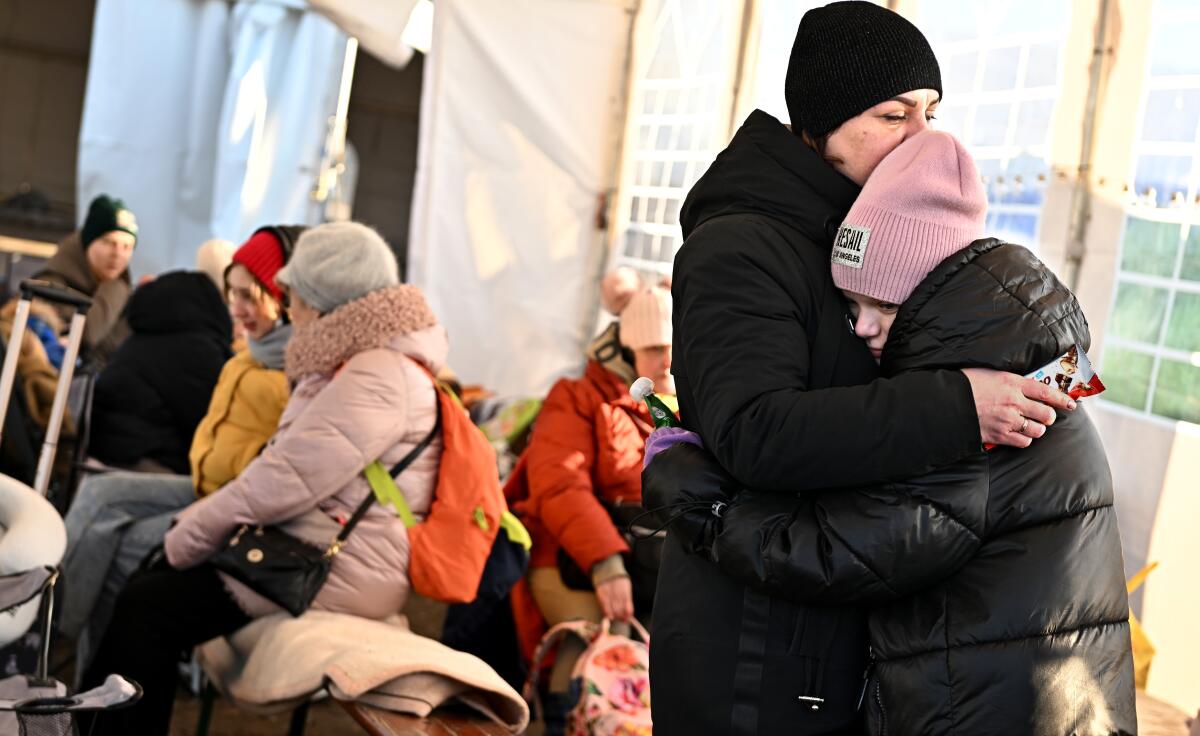
“So what is the news today?” a man in line at a grocery store in Warsaw asked a fellow shopper the other day, without even having to mention Russia or Ukraine. “What happened?”
Ukrainian flags and lapel pins are everywhere, as are declarations stenciled on walls affirming “Solidarity” with Ukraine.
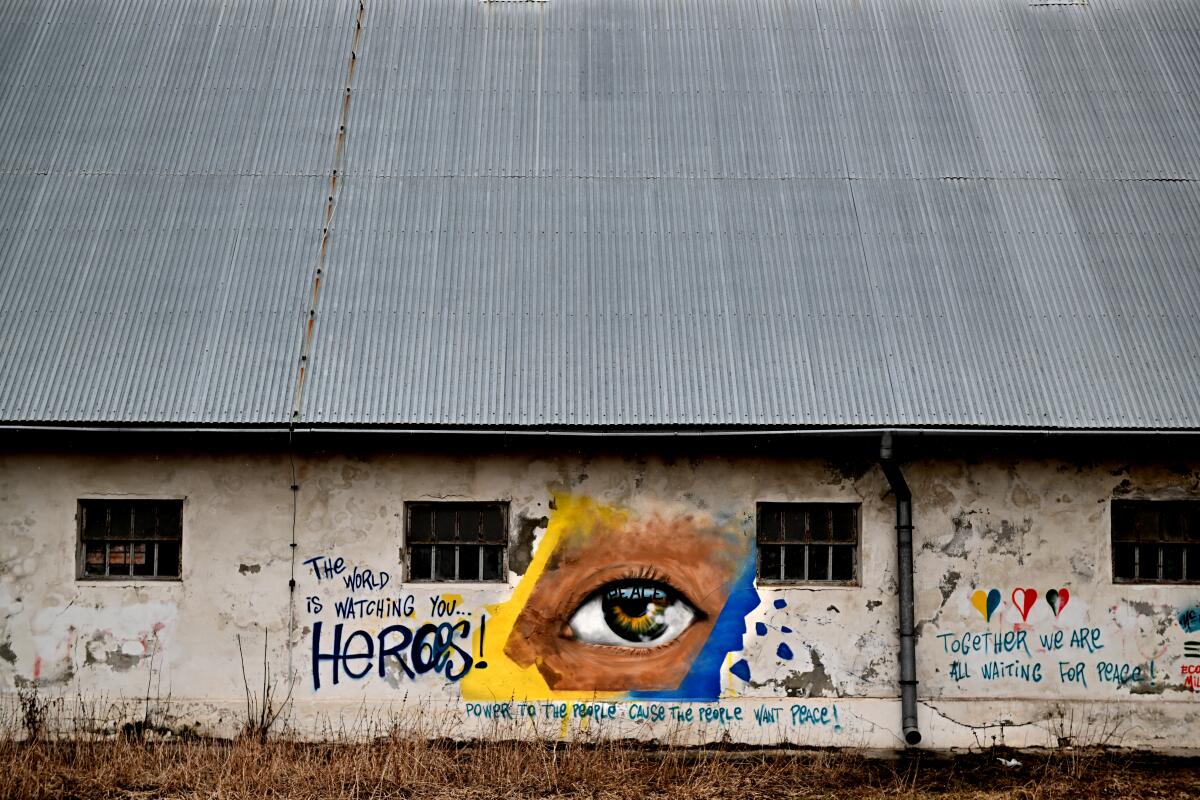
“We can say that every single one of us is at war now, and fighting by doing whatever we can to help,” said Mikolaj Szlachta, 19, one of many volunteers in green vests assisting crowds of exhausted Ukrainian refugees at the central rail station in Krakow. “This is how we fight.”
The volunteers seen at train and bus depots throughout the country are part of an extraordinary outpouring of support for the massive influx of refugees who have fled into Poland since Russia invaded Ukraine on Feb. 24. In the capital, Warsaw, the surge has approached a breaking point, with the mayor on Friday asking for international help. Many see the disastrous scenario unfolding in neighboring Ukraine as something that could also happen in Poland, which has for centuries been caught up in Great Power intrigues involving Russia, Germany and the former Austro-Hungarian empire.
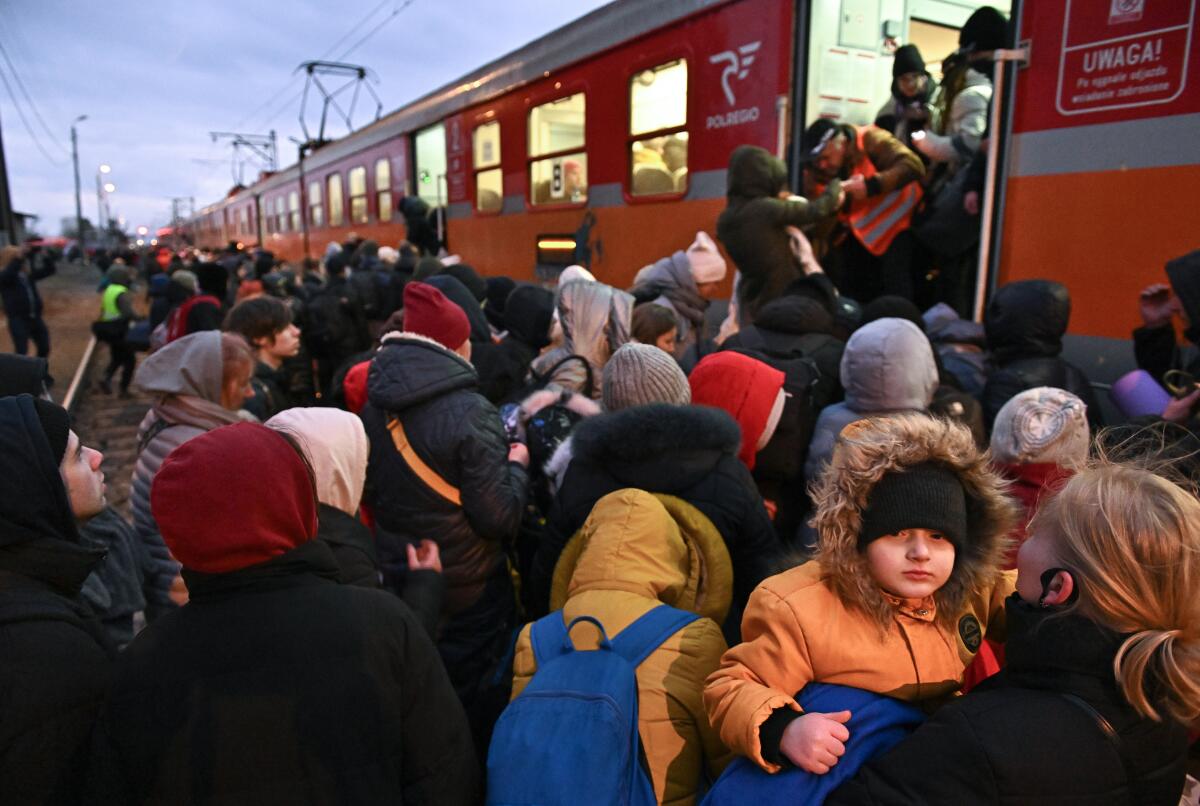
“We still, as a nation, recall the history from World War II, when we were in this situation, when we were asking for help and we were asking for shelter and food,” said Karolina Micolajczyk, who manages a hotel in Krakow’s Kazimierz district.
A Ukrainian flag hangs outside the hotel. Ukrainians filled all 28 rooms on a recent evening, she said.
Traces of the last global conflagration are never far off in Poland. Both Nazi Germany and the Soviet Union invaded at the outset of World War II, at a staggering cost in human life. The Kazimierz neighborhood was long the heart of Krakow’s Jewish community, which represented about one-quarter of the city’s prewar population before the Nazi mass murder campaign.
The former Jewish quarter is now a shabby-chic haven featuring hip bars, trendy cafes and boutique hotels. Signs in downtown Krakow feature bus tours to the infamous Nazi death camp at Auschwitz, an hour’s drive to the west.
The post-invasion fear of Russia has also hit the cultural sphere. A Warsaw orchestra recently decided to dedicate its performance to Ukraine and dropped a planned performance of a piano concerto by Sergei Rachmaninoff, the Russian composer. The orchestra substituted a concerto by Frederic Chopin, the Polish virtuoso.
There have also been scattered reports of harassment and vandalism. Ukrainians working for a Russian restaurant owner in Warsaw received threatening phone calls urging them to quit, according to reports widely circulated on social media. Meanwhile, Polish police were investigating the destruction of a Red Army monument in the northwestern city of Koszalin.
However, many Poles interviewed were quick to distinguish between the Russian people and its government.
“I don’t identify every Russian person with what’s happening in Ukraine,” said Szlachta, the student volunteering in the Krakow train station.
He, too, was skeptical that the invasion would escalate into Poland.
“I don’t think Russia’s leaders are dumb enough to attack a NATO country — that would mean a global conflict and World War III,” he said. “I hope it won’t get to that. But, then, anything can happen. You never know.”
Times staff writer McDonnell reported from Krakow and special correspondent Marrouch from Warsaw. Special correspondents Julia Waszkiewicz and Liliana Nieto del Rio in Krakow contributed to this report.
More to Read
Sign up for Essential California
The most important California stories and recommendations in your inbox every morning.
You may occasionally receive promotional content from the Los Angeles Times.
